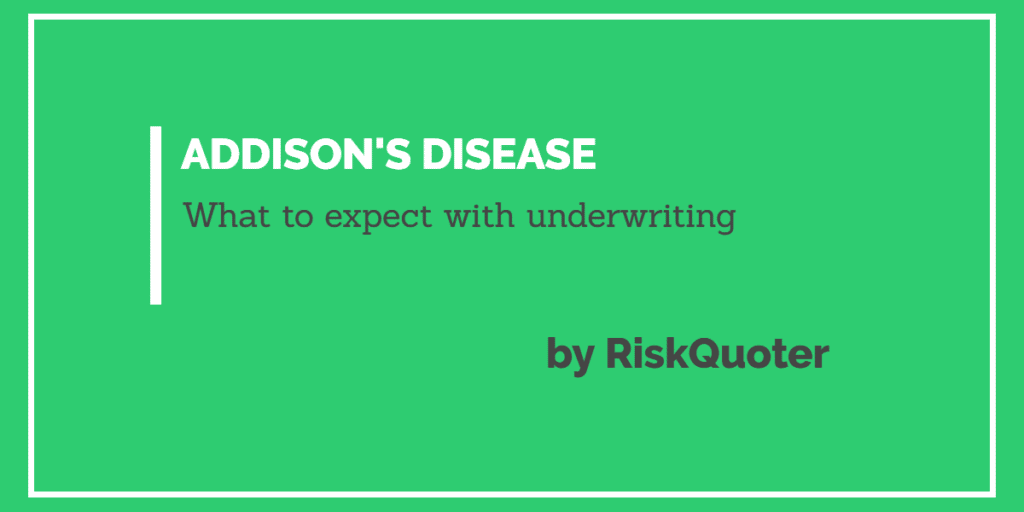Get the answers you need to make an informed decision about your life insurance.
A diagnosis of prostate cancer raises questions, potentially impacting your ability to secure life insurance. Nevertheless, getting life insurance after prostate cancer is still possible. This guide explores your options, factors affecting eligibility, and how to find the right policy.
- Life Insurance Eligibility
- Frequently Asked Questions
- Can I Get Life Insurance with Prostate Cancer?
- Life Insurance After Prostate Cancer Surgery
- Can prostate cancer survivors get preferred life insurance rates?
- Life Insurance After Radiation Therapy for Prostate Cancer
- Prostatectomy Combined with Radiation
- Denied Due to Prostate Cancer?
- Prostate Cancer FAQ
- Final Thoughts
Life Insurance Eligibility
Even with a prostate cancer diagnosis, you may still be eligible for life insurance. Several factors impact your eligibility, including:
- Your age when diagnosed with prostate cancer.
- PSA level at the time of diagnosis
- The type of prostate cancer treatment received:
- Radical Prostatectomy
- Radiation
- Active Surveillance – Watch & Wait
- Other
- Start and end dates of all prostate cancer treatment
- Time since treatment ended
- Prostate cancer stage information
- Gleason score
- Positive or negative surgical margins
- Any recurrence of prostate cancer
- Genomic test results
- Did you receive any hormone treatments?
Several life insurers specialize in high-risk life insurance underwriting for prostate cancer.
See What Our Clients Are Saying
Frequently Asked Questions
You have questions about prostate cancer, and we have the answers!
Can I Get Life Insurance with Prostate Cancer?
Getting life insurance when you have prostate cancer and your treatment plan is active surveillance is complicated. This is especially true if you are under the age of 60.
Is life insurance available to you?
| Coverage Available | Age 45-59 | Age 60+ |
|---|---|---|
| Term | YES(1) | YES |
| Universal | YES(1) | YES |
| G. I. | YES | YES |
| Accident | YES | YES |
When you have cancer and are being monitored, insurance companies require your complete PSA history to offer life insurance.
(1) Some 55-59-year-olds may be eligible for coverage depending on age, cancer details, and treatment.
PSA needs to be stable for 12 months for age 60 or older and 3-5 years for age 59 or younger.
Ideal active surveillance candidates:
You can get life insurance if you have cancer and meet the following criteria.
- Age 60 or older when diagnosed
- Stage 1 cancer cells
- Gleason Score of 6 or less
- Stable PSA for three years or longer
- Regularly scheduled visits with your urologist.
Standard rates are available after a 12-month postponement period.
Unfavorable Active Surveillance Factors:
- Age 55 or younger when diagnosed
- PSA Level of 10 or greater
- Gleason Score of 7 or greater
- Stage T2 or greater
- If your urologist recommends surgery or radiation.
Some cases may encounter a flat extra expense.
Note: Genetic testing such as the Oncotype DX GPS test may help.
The above assumes you’ve had no other significant health history, such as diabetes, heart disease, hepatitis, or other cancers. If you have anxiety triggered by cancer, companies don’t hold that against you for underwriting.
Skin cancer is ok as long as it isn’t melanoma.
The best life insurance companies for cancer patients will depend on the above factors.
Life Insurance After Prostate Cancer Surgery
If you had prostate cancer surgery (radical prostatectomy), life insurance might be available in as little as three months after surgery![1]
Standard rates are possible, and Prudential may consider a non-smoker plus rate.
Ideal Radical Prostatectomy Candidates
The best life insurance companies for prostate cancer survivors go to men who meet this criteria:
- Pretreatment PSA levels of 10 or less
- Gleason score of 6 or less
Post-surgical pathology stage T2b or less- Negative (clear) surgical margins
- PSA level less than 1.0 after treatment
- Age 60 or older at the time of diagnosis
- No family history of prostate cancer
- No lymph node involvement
If you don’t meet the above, there will be a 12-month postponement period for life insurance. [2]
Unfavorable Radical Prostatectomy Factors:
- Pretreatment PSA 11-20
- Gleason 7
- Cancer stage T3a
- Hormone therapy before treatment
- Diagnosed between the ages of 50 – 55
- Positive surgical margins
- PSA >1.0 after surgery
- Gleason 8
- Cancer stage T3b or greater *
- Hormones after treatment *
- Any Recurrence *
- Diagnosed before age 50 *
- Cancerous lymph nodes
* Requires a five-year postponement [1]
Can prostate cancer survivors get preferred life insurance rates?
It’s really difficult to get a “preferred” life insurance rate after prostate cancer.
Prudential, John Hancock, and Symetra are the only companies willing to consider preferred rates.
Prudential will consider preferred rates if it’s been two or more years since the radical prostatectomy and you meet the above criteria[3] [4]
John Hancock will consider preferred rates ten years after radical prostatectomy.
Symetra’s Preferred Cancer Program (PCP) is case by case for consideration.
Life Insurance After Radiation Therapy for Prostate Cancer
Most clients will need to wait a minimum of 12 months from the completion date of radiation treatment before life insurance companies will offer coverage.
Underwriters want to see that the treatment works and that the cancer is in remission.
Critical to getting insured is the need to have documented follow-ups and all PSA test results from the first elevation to 12 months after completing radiation.
Ideal factors for radiation patients
- A pretreatment PSA level of 10 or less
- Gleason score of 6 or less, and some Gleason 7 (3+4)
- Post-treatment PSA level of 0.2 or less.
- PSA level stable for more than 12 months
- Age 60 or older at the time of diagnosis
If you meet the above, some life insurers will consider “standard” rates or possibly a “non-smoker plus” rate.
Unfavorable radiation treatment factors:
- Gleason Score of 7 (when it’s a 4+3)
- Under Age 60, when diagnosed
- Hormonal Therapy
- PSA Increase of 1.0 or more above your nadir
- Gleason Grade of 8 or greater.
- PSA increases greater than 2.0 ng/ml are considered a recurrence.
Cancer recurrence requires a five-year postponement period.
Types of radiation treatment include:
- Internal radiation such as brachytherapy.
- External radiation – EBRT- IMRT, IGRT, 3D-CRT, SBRT, and Proton Beam.
A quick note about radiation – The type of treatment and radiation dose doesn’t matter as much as the medical outcome.
We’ll also need to know about prostate disorders such as BPH, prostatitis, and high-grade PIN.
Have you had any genomic testing completed? Let us know your test and the result, as it can help with underwriting.
Genomic prostate cancer tests include:
- Decipher
- FoundationOne Liquid CDX
- Oncotype DX
- Prolaris Test
- ProstaVysion
We’ll share these test results with companies to get coverage for you.
Prostatectomy Combined with Radiation
When you receive surgery and radiation, there will be a postponement period that follows the above radiation guidelines.
In addition, the rates tend to be more expensive due to the increased concern about your diagnosis requiring both treatments.
Underwriters are concerned about the potential to spread to lymph nodes, your bladder, or gastrointestinal organs.
Any underwriting offers will likely include a table rating and a flat extra expense.
Hormone therapy, if any, is also a vital factor to disclose.
We found an excellent resource for understanding your diagnosis at the Prostate Cancer Foundation.
Recent Articles:
Addison’s Disease Life Insurance
If you have Addison’s Disease and need life insurance, let us help you. Our life…
AFib Life Insurance – How Much Should Your Policy Cost You?
Bipolar Disorder Life Insurance
Bipolar Disorder is an illness that causes significant changes in mood, activity levels, and the ability to carry on…
Bladder Cancer Life Insurance
We help bladder cancer survivors find affordable coverage from life insurers specializing in high risk….
Buying Life Insurance After Thyroid Cancer – How to Get Your Best Rate!
People with thyroid cancer often face hurdles when applying for life insurance. For example, How…
Cervical Cancer Life Insurance
Life insurance is now possible for cervical cancer survivors. We’ll help you find affordable coverage…
Denied Due to Prostate Cancer?
Have you been denied because of prostate cancer?
Many declines are due to working with the wrong life insurer, as only a few specialize in high-risk cases.
Burial insurance for cancer patients may be possible for those with advanced stage 3 or stage 4 cancer.
Prostate Cancer FAQ
The following are the most common questions we receive.
You can get life insurance if you meet the criteria we described above.
Life insurance is available if you meet the active surveillance criteria described.
Prudential, Lincoln Financial Group, John Hancock, and Protective Life are some of the best insurance carriers.
For example, some companies specialize in radiation and active surveillance, while others specialize in radical prostatectomy.
Remember that only a few companies specialize in high-risk coverage. That’s why it’s crucial to work with us.
In the early years, life insurers prefer radical prostatectomy. Radiation and active surveillance receive similar offers as more time passes.
Final Thoughts
There’s never any pressure or obligation with our service.
We provide underwriting feedback from insurance carriers specializing in high-risk underwriting.
With Covid still prevalent, some companies have limited offers for older ages, but we can help you navigate that.
Please take a few minutes to submit your request.
Sources for This Article
[1] Prudential Financial, Inc. (2017) Prostate Cancer [PDF file]
[2] Lincoln National (2020) Prostate Cancer Life Insurance Application Result
[3] Prudential Financial, Inc. (2016) Good News for Clients Treated for Cancer [PDF file]
[4] John Hancock Insurance (2018) Field Underwriting Guide – Your Guide to Underwriting Impairments, Part II Pg. 23 [PDF file]






